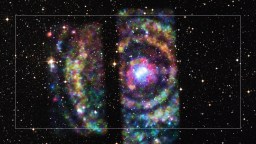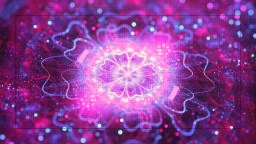JON GERTNER: One thing that's particularly worrisome about the Arctic right now is that it's warming about twice as fast as the rest of the world. And there's this term scientists use for it, called arctic amplification. So whereas the rest of the Earth on average has warmed about 1 degree centigrade since pre-industrial era, the Arctic is more like 2 degrees centigrade. And some places in Greenland Pronounced, and in Siberia, too. There are two really worrisome results from this. One is that the ice that covers the Arctic, the sea ice, this is floating sea ice, that goes over the North Pole and around the Arctic Ocean has been decreasing dramatically over the past 20 years.
In fact, this is probably the greatest sort of most significant natural change to ecosystems on Earth since human beings have been around. It's declined by somewhere between a third and half. What that means is that as the ice sort of decreases, the albedo of the Arctic changes. Ice, of course, is white and bright, and it reflects solar energy back into space. When it exposes dark, open ocean, that open ocean absorbs more sunlight and more energy. And it creates a kind of feedback loop that the more ocean that's exposed, the more energy that's absorbed, the more heat that's actually absorbed as well. And it kind of builds on itself. So it feels like the-- it is true, the more Arctic ice that we lose, it seems, the more we are in danger of losing more Arctic ice. And right now the summer time melt is about at record levels.
The sea ice sort of reaches a low point by late August, and almost every year it's either at record levels or near record levels in terms of how much has been lost. When we lose sea ice we don't raise sea levels. It's like ice melting in a glass, it just melts. It has negative effects, but it doesn't flood our cities. However, the other problem of the warming Arctic is that Greenland's ice and Greenland's ice sheet, when it melts it does drip into the ocean, and it does add mass to the ocean, and does raise sea levels. And it does create this kind of future of floods. And the same goes for Antarctica on the other side of the Earth. Greenland, Greenland is vulnerable to similar kinds of feedback loops that the Arctic ice For instance, as Greenland melts, the altitude of the ice, this big dome of ice gets lower down.
And at lower altitudes there are warmer temperatures. So the more Greenland melts on top, the more the altitude of the ice sheet declines, and the more vulnerable that is to summertime melt. At the same time, over the last few years especially, scientists have noticed that the ice sheet is getting darker. Especially on this strip of western ice kind of near the southwestern coast. And this darkness is caused by a couple of things. One, sometimes it's lack of snow cover. Ice is actually darker than snow, and we have fresh snow, you have a very bright reflective surface. But I think more crucially what's happening is that there's kind of algae and other organisms that are growing on the ice sheet that lend it a darkness. And there's also sort of carbon soot that's deposited there. And I've been on the ice sheet several times. And when you think of the ice sheet, you think of maybe it's, oh, it's like a skating rink, or it's like being on a kind of ski slope.
And in some parts it feels like being on a kind of snowy field. But in a lot of parts, especially on the west, it's like being on top of brittle, dirty ice. And you look down and you can actually see these kinds of dark, strange pockets within. And there are a number of scientists that are doing experiments on those. There's a British team that's called-- that's doing something called Black and Bloom. And they've discerned a kind of vast, kind of natural ecosystem of algae and bacteria that's growing on the Greenland ice sheet every year, especially in summer when it comes back.
The takeaway here is that the darkness absorbs more solar energy and more sunlight. It accelerates the melt of the ice. When we talk about how if Greenland's ice sheet gets darker it melts more, and if it melts more it gets darker. All of which is to say that these feedback loops create this kind of difficult proposition that the more Greenland melts, the more Greenland melts.





